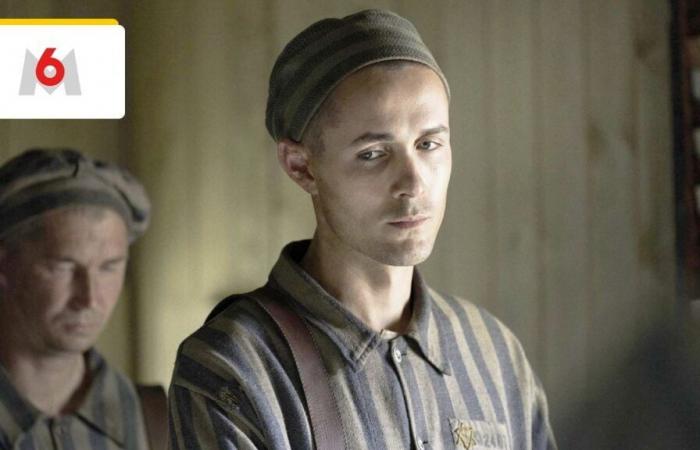
“The Tattooist of Auschwitz”, which is broadcast this evening on M6, is adapted from a novel which underwent numerous criticisms during its publication. Is Lali's story really a true story? We tell you everything.
In 2017, The Tattooist of Auschwitz was released in bookstores, a novel written by Heather Morris which very quickly became an international bestseller with today more than 14 million copies sold worldwide.
Five years later, Sky Studios and Peacock acquired the rights to make a poignant mini-series, which will be broadcast from this Wednesday January 22 on M6.
Is the series adapted from a true story?
The Tattooist of Auschwitz tells the true story of Lali Sokolov, a prisoner at Auschwitz who was responsible for tattooing identification numbers on the arms of other prisoners. However, in the hell of the concentration camp, he met the love of his life, Gita Furman, whom he married at the end of the war.
Lali Sokolov, who died in 2006, wanted to tell his story to Heather Morris before he died so that his story would live on even after his death. The book and the series are therefore inspired by these conversations. But while both works are presented as being based on a true story, many have questioned the accuracy of what is being told.
A criticized novel
In an article published in 2018 in a magazine produced by the Auschwitz-Birkenau State Museum, Wanda Witek-Malicka, one of the employees of the research center, returned to the various facts present in the book.
She thus confirmed that Lali Sokolov had really been a tattoo artist and a prisoner at Auschwitz. He arrived at the camp on April 23, 1942, and was assigned the number 32407. It is also true that he tattooed the identification numbers of the other prisoners.
He actually fell in love with Gita Furman, and they lived happily ever after. Wanda Witek-Malicka, however, questioned certain points in the novel, particularly on the functioning of the camps.
She indeed explained that it was not possible that the meeting between Lali and Gita took place while he was tattooing his number on her. Men in fact exclusively tattooed male prisoners, while female prisoners were tattooed by women.
-Wanda Witek-Malicka especially criticized the fact that author Heather Morris had based herself solely on Lali's story without comparing it with archival documents on the Auschwitz camp.
A series more faithful to the true story
The showrunners of The Tattooist of Auschwitz, however, took to heart to work on the details to make the series more faithful to historical facts, as they explained to our colleagues at Time. For example, they did not use the Gita number listed in the novel, but the one she had mentioned in her testimony to the Shoah Foundation.
In the novel, Lali tries to find penicillin for Gita, but this medicine was not widely available at that time. So in the series they chose to call the drug an antimicrobial.
The fiction also clarifies that Sokolov was one tattoo artist among others, and not the only one as the novel suggests. They also visited Auschwitz several times to make the camp as realistic as possible.
The production enlisted documentary filmmaker Naomi Gryn to view survivor testimonies, liaise with libraries and museums around the world, and inquire with the Auschwitz Museum. Tali Shalom-Ezer, the director of the series, nevertheless clarified to Time that The Tattooist of Auschwitz is based on Lale's memories, and on the story he wanted to tell.
“Ultimately, the story we tell is Lali's. We believe Lali. We will tell his memories, exactly as he described them”, she explained. The goal of the series is not to offer a historically accurate series, but rather to encourage people to “do their own research”, as Claire Mundell, the producer, explained to our colleagues.
Despite everything, The Tattooist of Auschwitz remains a necessary fiction which shows the horror of the camps, and highlights the traumas which haunted the survivors after their liberation.
Catch the first two episodes of The Tattooist of Auschwitz this Wednesday, January 22 from 9:10 p.m. on M6. The evening continues at 11:15 p.m. with the broadcast of the documentary “The True Story of the Auschwitz Tattooist”, which tells a story of love and hope that triumphs over horror and chaos, while retracing the functioning of the Auschwitz-Birkenau camp.





